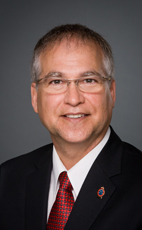Mr. Speaker, I am pleased to join today in the second reading debate of Bill S-3. I would like to focus my comments more specifically on the amendments themselves as made by the Senate to the bill. I want to assure this House, though, that the people of Cambridge and North Dumfries in my riding wish me to support this bill, so I am happy to speak in favour of it.
I would like to mention, too, that I will be splitting my time with my colleague from Selkirk—Interlake.
Some people may think that my riding of Cambridge is one of those communities that is not on the terrorist list and would wonder why I would be up in the House speaking to this issue, but my riding has one of the busiest highways in all of Canada, the 401, going right through it. We have an urban area of about 110,000 to 113,000 people, divided into nice little communities that we used to call Hespeler, Preston and Galt.
Within 45 minutes of Cambridge, there are three airports and the riding itself is actually very diversified. One of the largest veal producers in North America is in my riding. Eighty per cent of the satellites that circle this world have parts from COM DEV in my riding. A statistic that shocked me is that there are 150 million people living within an eight hour drive of my riding, so I think it is exceptionally important for the folks in my riding that we concern ourselves with the threat of terrorism.
I am very pleased to have the opportunity to debate, at second reading, Bill S-3. I will limit my comments to the amendments made to the bill by the Senate.
When the Minister of Justice appeared before the Senate special committee on December 3, 2007, the committee questioned the constitutionality of the wording that was used in section 83.3, which deals with the recognizance with conditions provision.
The concern raised flowed from the 2002 judgment by the Supreme Court of Canada in a case called R. v. Hall. In the Hall case, the Supreme Court considered the constitutionality of the specific wording in the bail provisions, wording which was replicated in actual fact in Bill S-3.
Specifically, the Supreme Court found that paragraph 515(10)(c), the third ground for denial of bail, was unconstitutional under sections 7 and 11(e) of the charter, in particular because of its use of the words “any other just cause and, without limiting the generality of the foregoing, that...”.
As I said, as introduced, Bill S-3 had also proposed the use of the same wording in the recognizance with conditions provision.
The government obviously agreed that this needed to be corrected. The amended version of paragraph 83.3(7)(b)(C) now begins with the words “the detention is necessary to maintain confidence in the administration of justice”, and it goes on from there. I refer my colleagues to lines 28 to 30 of page 6 where they will find that the wording has been corrected and is now quite constitutional.
The second amendment addressed inconsistencies in the wording that appeared in clause 1 of the bill. Subsection 83.28(4) contains two paragraphs. The first one focuses on past terrorism offences. The second one focuses on future terrorism offences.
As introduced, however, there was an inconsistency in the use of the terminology between the two paragraphs. The former referred to “a terrorism offence”, whereas the latter referred only to “the offence”. The French version suffered the same defect.
The special Senate committee therefore amended subparagraph 83.28(4)(b)(ii) to ensure consistency in the wording in both provisions and of course in both official languages.
Finally, the third amendment made by the Senate to Bill S-3 was to subsection 83.32(1.1). This subsection originally proposed that a review of these two powers proposed by Bill S-3 be made at the discretion of Parliament. The Senate amended this particular provision to make the parliamentary review of these powers mandatory.
As we can see from the summary of the Senate amendments, these were slightly technical although very important amendments and they did not alter the essence of Bill S-3.
The proposals in Bill S-3 provide law enforcement agencies with the proper tools. I will point out that the committee met with a number of law enforcement agencies that deemed these tools to be necessary to help them do their jobs in addressing the ever present threat of terrorist attacks. They also include safeguards required to help preserve the safety and security of all Canadians, as well as to protect their fundamental rights, the right of hard-working Canadian families to play, to feel safe at night and to live their lives in peace.
I am asking all hon. members in this House to hear the facts of this bill and understand the need for such important legislation. I ask them to join me and support it.
I urge all members of this House to support Bill S-3.

